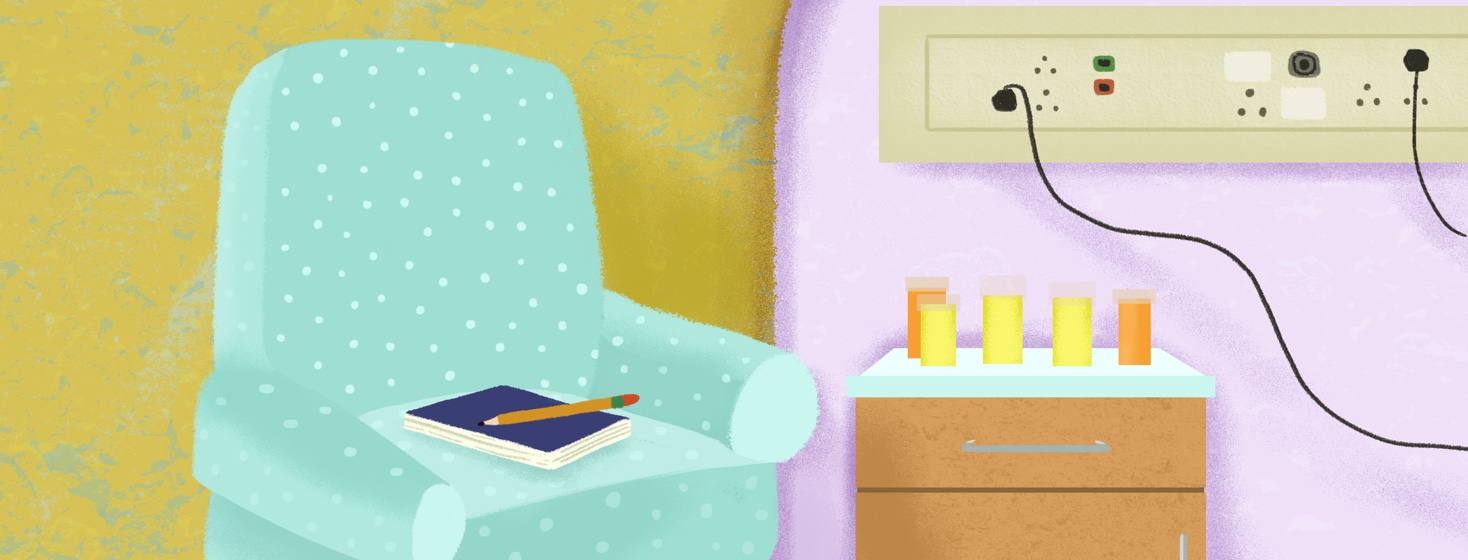How Does the Care Team Treat the Caregiver?
Cancer caregivers are often described — in brochures or panel discussions – as selfless. Friends, family, and providers have a tendency put them on a pedestal.
In my experience, though, the day-to-day reality of caregiving differs from that idealization.
Seeing many different specialists
When my husband had metastatic bladder cancer, we saw a lot of specialists across the care spectrum – surgeons, medical oncologists, nurse practitioners, nurses, physical therapists, occupational therapists, and palliative care specialists.
Every appointment – especially with a new provider – presents a situation in which a dynamic between the caregiver and the provider is established.
Caregivers are described as crucial but not necessarily treated that way
My opinion and input have been both valued and dismissed by providers. I’ve seen providers become annoyed when I speak at all during the appointment, and they make a point to speak only to the patient. I have been verbally scolded to that effect.
But I’ve also had providers tell me and my husband that the caregiver is a crucial part of the treatment team and to be very inclusive of my perspectives during an appointment.
Providers will take their cues from the patient
Providers have their own perspectives - but they will take their cues from the patient. Some providers are simply more attuned to the caregivers and their significance than others. Most are trying – especially when you first meet them – to understand the patient-caregiver relationship.
They are trying to understand the extent to which the patient wants the caregiver involved. You can help them with this.
It's not about you...but it affects you
Let me be clear: regarding the illness, the treatment decisions, and the path forward, it is – and should be – about the patient. But as a caregiver – and I think this is truer the sicker the patient – the disease and the decisions affect you.
I encourage caregivers to try and help the patient understand this, if he or she doesn’t seem to. Talk with the patient at home. Maybe even role-play an appointment.
What role does your loved one want you to play?
What role does the patient want you to play at an appointment? To be a quiet notetaker? To remind him or her of questions not asked? To do most of the speaking? To bring up research the caregiver has conducted? To mention things the caregiver thinks the patient forgot to mention?
Clarifying this at home – if that’s a conversation you can have with the patient – can go a long way to setting the tone with providers. The patient might even be willing to tell the providers directly that he or she wants the caregiver involved in the discussions and the decision-making.
A common dynamic between patient and caregiver
A common dynamic between patient and caregiver is that the caregiver feels the patient doesn’t fully reveal to the doctor the challenges or side effects that have been happening. I personally did not experience this dynamic, but it is a frustration I’ve heard time and again from caregivers.
The caregiver then ends up adding information at the appointment. The patient might be annoyed – or even feel humiliated by this. And the provider might feel that the caregiver is being too pushy. But the caregiver feels the picture is incomplete without the added information.
I would encourage the caregiver to try talking about a specific appointment in advance of it. What are the issues the patient expects to discuss? What are the challenges he or she plans to share? Maybe just that extra conversation and thought in advance of the appointment may nudge the patient into sharing more comprehensively.
Try to communicate but don't despair if it's not perfect
Try not to feel discouraged if communicating with the patient and providers feels less than perfect. Some patients are not communicative. Or they may not know what role they want the caregiver to play – especially if it’s early on.
But even a small bit of clarity in advance between the patient and the caregiver can go a long way in the doctor’s office.
Do your best to communicate but also do what you need to do to maintain sanity and serenity as a caregiver. Like everything with bladder cancer, it’s day by day and even moment by moment.

Join the conversation